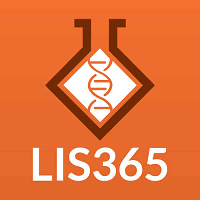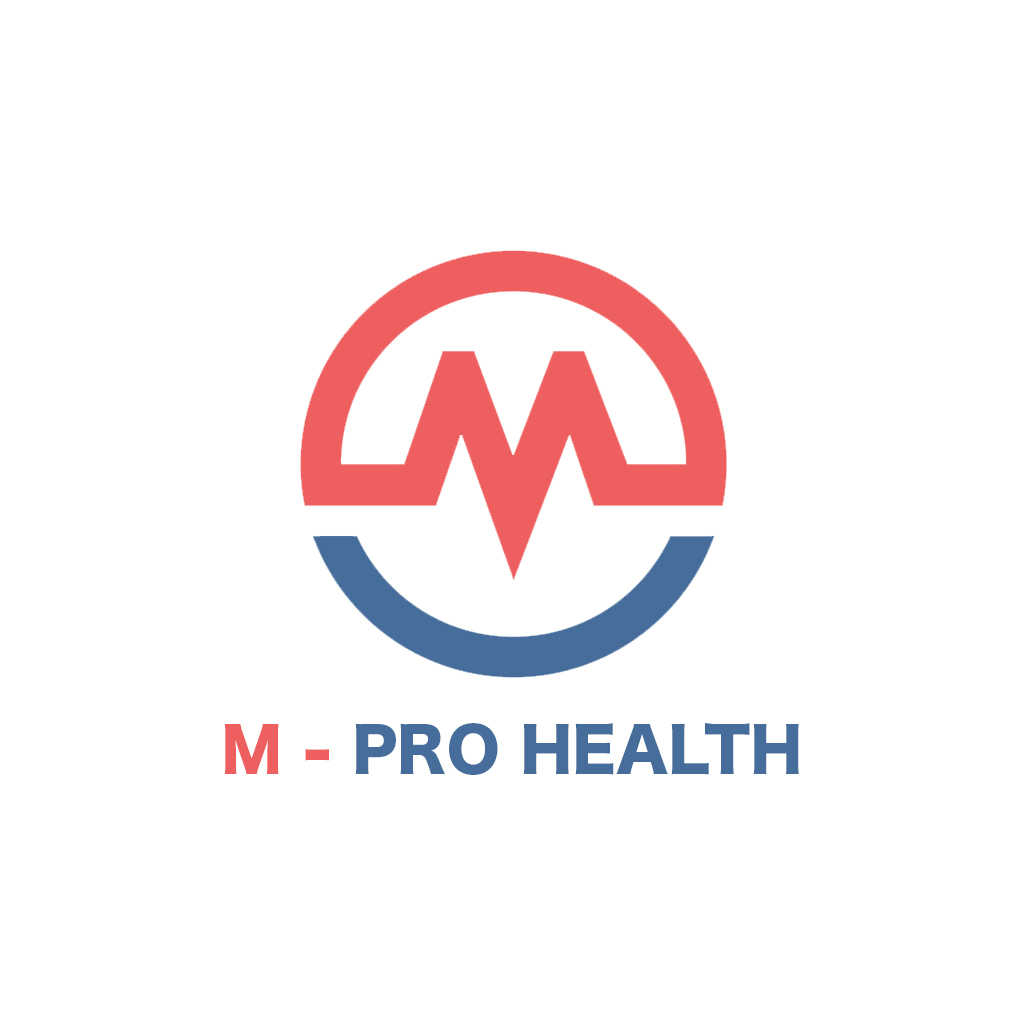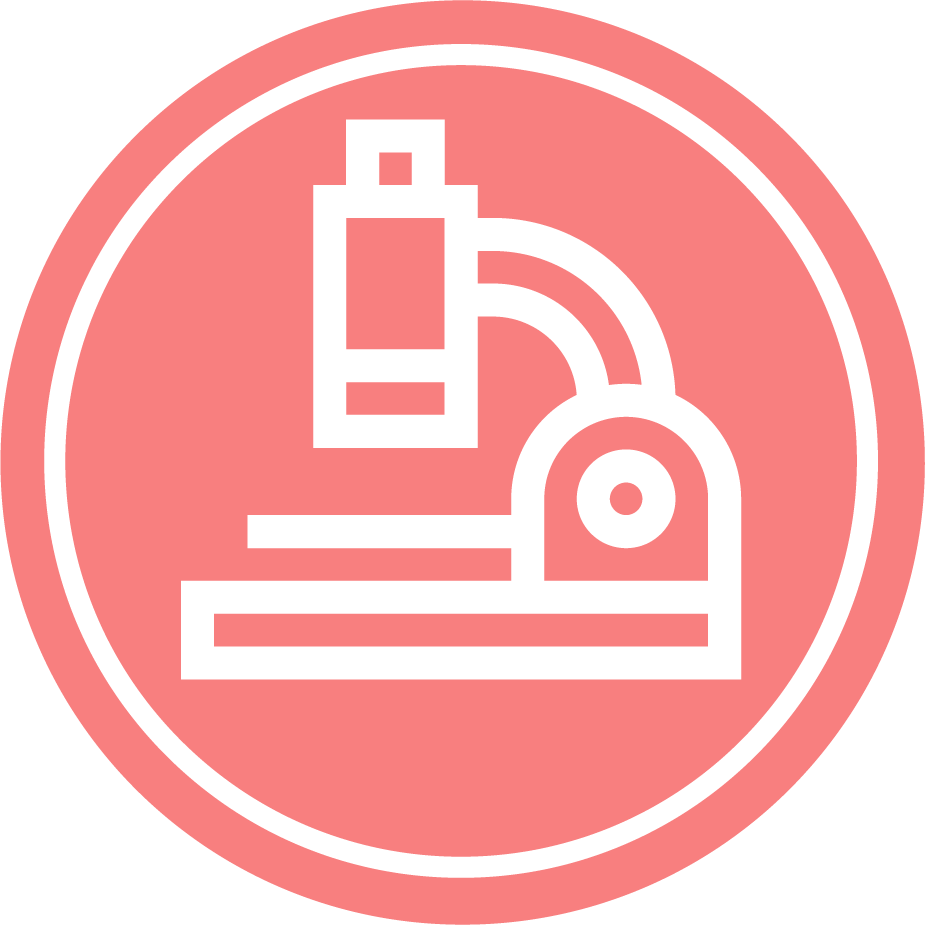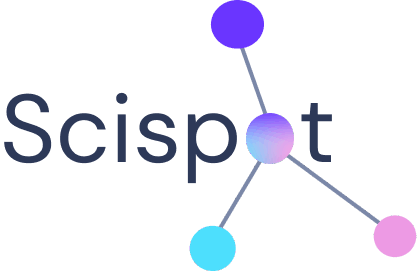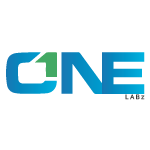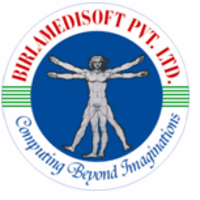Yes, most lab management software is compatible with many devices and platforms. This means you may access and manage your lab data and tasks from any device, including a desktop computer, laptop, tablet, or smartphone, as well as a variety of operating systems such as Windows, Mac, and Linux. This gives lab managers flexibility and convenience when they need to view their data on the go or from several devices.
List of 20 Best Lab Management Software
Health.NET solution for effective medical practice and streamlined healthcare management. This comprehensive software offers seamless integration and unmatched features, making it the top choice for optimizing healthcare environments. With Health.NET...Read More Health.NET
SkyVF - Hospital is a Hospital ERP system specifically developed for managing Clinics, Hospitals, and IVF facilities. Developed by a team of experienced medical experts and IT specialists, it provides the most comprehensive Hospital Management System...Read More SkyVF - Hospital
LIS365 is a highly advanced and flexible Medical Laboratory Information Management System (LIS) that utilizes cutting-edge technology to deliver exceptional performance. With years of experience as a leading LIS, LIS365 offers the perfect solution fo...Read More LIS365
M-ProHealth, the premier IT solution for single or multiple hospital environments. This cutting-edge system seamlessly integrates all hospital operations, creating a smooth flow of communication among staff members. With M-ProHealth, you can enhance...Read More M-ProHealth
Pathosys solution for effortless pathology reporting. Say goodbye to the constant need for manual word adjustments - our standardized report layout takes care of that. Experience the freedom of customization with our flexible software, allowing you t...Read More Pathosys Software
KMS Diagno solution for Clinical Labs to optimize patient record management and generate precise test reports. Eliminate manual processes and data inconsistencies with our intuitive software. Effortlessly track patients and guarantee accurate results...Read More KMS Diagno
HealthLink Retail Pharmacy is aonline platform for retail and wholesale pharmacies. Powered by advanced technology, HealthLink allows for seamless collaboration among multiple users and locations. Discover the convenience and efficiency of this compr...Read More HealthLink Retail Pharmacy
Magnatte LIMS – solution for all your laboratory needs. This advanced software simplifies and streamlines sample management, making your workflows more efficient. Say goodbye to scattered data and hello to enhanced productivity. With Magnatte,...Read More Magnatte
Smart Lab solution for optimizing laboratory operations. This software incorporates a Laboratory Information Management System (LIMS) to streamline processes and enhance workflow efficiency. By facilitating improved communication between staff and cl...Read More Smart Lab
Halemind, a Electronic Health Record and Hospital Management System. Experience streamlined operations and real-time data for enhanced efficiency in your daily healthcare operations. With its advanced connectivity, Halemind offers invaluable insights...Read More Halemind
Scispot is a automation software designed for fast-growing life science firms. Our robust platform facilitates seamless teamwork during every stage of research and development, from ideation to experimentation and analysis. With advanced features, te...Read More Scispot
ACGIL Calibration & Testing Lab software designed to guarantee precision and consistency in equipment measurements. This solution enables users to establish traceability to National and International standards, ensuring compliance with industry regul...Read More ACGIL Calibration & Testing Lab
iHMS - a Hospital Management System designed to efficiently manage patient data. Our comprehensive solution simplifies data capture, manipulation, and reporting, allowing your facility to stay ahead of the competition. With iHMS, your hospital can en...Read More iHMS Hospital Management
Clustermarket - the leading lab management platform tailored for life-sciences labs. By effortlessly connecting people, equipment, and data, our platform eliminates location barriers, streamlines lab processes, and promotes seamless collaboration. Im...Read More Clustermarket
OneLABz - the next generation Diagnostic Pathology Lab Management Software designed to optimize the functioning of pathology centers. This cutting-edge platform streamlines lab activities and offers a user-friendly web interface for tasks like test o...Read More OneLABz
Innopath LIMS - an internationally recognized leader in laboratory informatics solutions. Our customized LIMS solutions have a proven track record of enhancing productivity and facilitating collaboration among various laboratory locations. Trust us t...Read More Innopath LIMS
Unite Soft LIMS solution for metallurgical laboratories with NABL accreditation. This advanced web-based software has been designed to meet NABL regulations and also comes with a user-friendly Android app. Experience the power of Unite Soft LIMS with...Read More Unite Soft LIMS
Maxim LIS is a laboratory management solution for all Pathology and Radiology reporting requirements. With its user-friendly web-based platform, Maxim LIS offers unlimited LAN terminal licenses and advanced features for both Intranet and Internet usa...Read More Maxim LIS
Labscion, our SAAS-based Lab Information Management System (LIMS). Designed specifically for independent and small diagnostic labs, it offers exceptional value at a fraction of the cost of larger lab chains. With easy recoupment of your investment, L...Read More Labscion
Sterling Lab the software that provides a secure login and dynamic report management system. Say goodbye to manual processes, our software automatically loads distinct values for all parameters for hassle-free doctor-specific commission reports and d...Read More Sterling Lab
Learn More About Lab Management Software
- What Is Lab Management Software?
- What Are The Recent Trends In Lab Management Software?
- Benefits Of Using Lab Management Software
- Important Factors To Consider While Purchasing Lab Management Software?
- What Are The Key Features To Look For In Lab Management Software?
- Why Do Businesses Need Lab Management Software?
- How Much Time Is Required To Implement Lab Management Software?
- What Is The Level Of Customization Available In Lab Management Software?
- Which Industries Can Benefit The Most From Lab Management Software?
- Conclusion
What Is Lab Management Software?
Lab management software, often known as laboratory information management system (LIMS), is a type of specialized software that simplifies and automates the management of laboratory procedures and data. This software provides a comprehensive solution for recording, organizing, and managing a variety of laboratory operations, including sample tracking, data management, inventory management, result analysis, and quality assurance.
At its core, lab management software serves as a centralized platform that allows labs to manage their operations more successfully and efficiently. This software's straightforward layout and customisable features make it easy to use while increasing overall productivity. It enables laboratories to automate regular activities, lowering the possibility of human error while assuring data accuracy.
One of the primary advantages of lab management software is its capacity to store and handle massive amounts of data securely. This ensures that all experimental data is easily available and retrievable when requested. The program also enables real-time monitoring of lab processes, which provides insights into performance and improves process management.
Furthermore, lab management software includes built-in quality control functions to assure compliance with industry standards and laws. This is especially important for laboratories that must retain accreditation and adhere to tight quality control procedures. When selecting lab management software, you must evaluate your laboratory's specific needs.
Look for features like barcode tracking, instrument and system interaction, workflow configuration, and customisable reporting. A user-friendly UI and dependable technical support are also important to consider. Overall, investing in lab management software can help a laboratory improve its operations by reducing errors, saving time, and increasing data accuracy. With its many functionality, this software is an invaluable tool to any lab trying to improve productivity and maintain high-quality standards.
What Are The Recent Trends In Lab Management Software?
Lab management software has advanced significantly in recent years, owing to the growing demand for more streamlined and effective laboratory operations.
Buyers should be aware of the following significant trends when considering lab management software:
1. Cloud-Based Solutions: Traditional lab management software frequently needed installation and maintenance on individual computers, making it difficult to exchange data and work efficiently. Cloud-based solutions have been increasingly popular in recent years, enabling remote access, data storage, and seamless collaboration among team members.
2. Automation And Integration: As technology advances, lab management software now includes automation tools to help optimize operations and remove time-consuming manual chores. Integration with other lab equipment, such as sequencing machines and analyzers, is becoming more common, allowing for real-time data interchange and analysis.
3. Data Analytics And AI: As big data has grown in popularity and laboratories have become more reliant on data-driven decision-making, data analytics and artificial intelligence (AI) have emerged as critical components of lab management software. These tools can analyze massive datasets, discover trends, and forecast outcomes, allowing researchers to make more educated judgments.
4. Mobile Applications: To improve lab worker accessibility and mobility, many lab management software companies now include mobile apps. These apps enable users to access and input data, evaluate inventory levels, and control workflows from their mobile devices, thereby enhancing laboratory efficiency and productivity.
5. Security And Compliance: Given the sensitivity of laboratory data, lab management software companies prioritize security and compliance. Recent advancements in this field have centered on creating strong security measures and ensuring compliance with data protection requirements in order to safeguard valuable research and maintain client trust.
Buyers must examine these trends when selecting lab management software, as they have a significant impact on the efficiency and efficacy of lab operations. By remaining educated and selecting a software solution that matches with these latest trends, labs may stay ahead of technical changes and optimize their workflows for better results.
Benefits Of Using Lab Management Software
Introduction: Lab management software is a strong instrument that streamlines and simplifies laboratory processes and procedures. It has a variety of features and functionality designed to meet the special demands of laboratories, such as data management, sample monitoring, inventory management, and more.
We'll look at the advantages of utilizing lab management software and how it can boost efficiency and productivity in your laboratory.
1. Automate Routine Chores: One of the primary benefits of adopting lab management software is the automation of routine chores. The program automates boring processes such as sample processing and data entry, allowing lab professionals to focus on more important tasks. This not only saves time, but also lowers the possibility of human error, hence boosting data accuracy and reliability.
2. Centralized Data Management: Lab management software provides a single platform for managing all data and information relevant to laboratory operations. This facilitates data access and analysis, resulting in more informed decision-making. Additionally, it eliminates the need for paper-based records, making the lab more environmentally friendly and lowering the chance of data loss.
3. Sample And Inventory Tracking: Lab management software allows you to monitor the movement and status of samples and inventory in real time. This feature ensures that samples are never lost or misplaced, and inventory levels are constantly up to date. It also enables improved sample and resource allocation, which reduces waste and increases efficiency.
4. Improved Collaboration And Communication: Effective communication and collaboration are critical for a laboratory's seamless operations. Lab management software enables all lab personnel to effectively communicate, cooperate, and exchange data. This increases coordination and eliminates miscommunications, resulting in a more efficient and productive team.
5. Compliance And Regulation Management: Meeting regulatory criteria is critical for every laboratory. Lab management software includes capabilities that ensure compliance with numerous rules and standards, including ISO and FDA. It also keeps track of all activities and data, making it easier to pass inspections and audits.
6. Cost And Time Savings: Lab management software can help your lab save time and money by automating activities, decreasing errors, and increasing efficiency. It removes the need for human data entry, reduces errors, streamlines procedures, and optimizes resource allocation. This results in considerable cost and time savings for the lab.
Important Factors To Consider While Purchasing Lab Management Software?
When it comes to choosing lab management software, there are a few crucial elements to consider to ensure that you get the best option for your requirements. After all, this software will be an essential tool for organizing and streamlining your lab operations, so make an informed pick.
Here are some crucial considerations to consider while selecting lab management software:
1. Features And Capabilities: The first thing to examine when choosing software is the features and capabilities it provides. When it comes to lab management, look for capabilities like sample tracking, inventory management, data organization and analysis, regulatory compliance, and communication tools. Make sure the program includes all of the tools you require to efficiently manage your lab.
2. User-Friendly Interface: The program you select should have a simple interface that is easy to explore and understand. This will save you time and effort when educating your employees and help to eliminate any user errors.
3. Compatibility And Integration: Determine whether the program is compatible with your existing systems and equipment. Ideally, the program should be able to interact with other lab applications and devices, allowing for efficient data transfer and analysis.
4. Customizability: Because each lab has unique requirements and operations, selecting software that allows for customization is critical. This enables you to modify the software to your individual requirements and workflows.
5. Cost-Effectiveness: Although the cost of the program is essential, it should not be the only deciding factor. Consider the long-term benefits and ROI of the software for your lab, including time and cost savings, increased efficiency, and accuracy.
6. Technical Support: Ensure that the software vendor provides dependable technical support and help in the event of any problems or concerns. This is critical to ensuring that your lab runs smoothly and without interruption.
7. Security And Privacy: When sensitive lab data and information are at stake, it's critical to select software that prioritizes security and privacy. Look for features such as data encryption, automatic backups, and user access controls.
8. Scalability: As your laboratory expands, your software should be able to handle the increased workload and data. Make sure the program can scale up to meet your future requirements without causing any problems. By taking these variables into account, you can make an informed decision about which lab management software is most suited to your lab's specific needs and process. Remember to conduct extensive research, demo the product, and read user reviews before making your final decision.
What Are The Key Features To Look For In Lab Management Software?
Lab management software is a comprehensive solution developed to help laboratories enhance efficiency, accuracy, and production. With so many options on the market, consumers may struggle to select the best software for their individual requirements.
To assist you in your decision-making process, we have created a list of crucial features to look for when selecting lab management software.
1. Inventory Management: Inventory management should be a key part of any lab management software. It involves tracking and monitoring lab supplies, reagents, and equipment to assure their availability when required. Look for software that provides real-time inventory updates, low-stock notifications, and the option to define reorder points and automatically produce purchase orders.
2. Sample And Data Management: The program should be able to handle sample and data tracking from a variety of sources, including instruments, spreadsheets, and LIMS. It should provide for easy tracking of samples throughout their life cycle, including collection, storage, analysis, and disposal. Furthermore, the program should include sophisticated data management facilities for storing, organizing, and analyzing experimental data.
3. Instrument Integration: One of the primary benefits of lab management software is the automation of manual chores. Look for software that integrates seamlessly with devices like spectrophotometers, chromatographs, and balances. This interface enables immediate data flow, minimizes human error, and accelerates the analysis process.
4. Electronic Records And Signatures: In today's laboratories, keeping correct records is critical for regulatory compliance. Lab management software should be capable of creating electronic records and signatures that comply with 21 CFR Part 11 and other industry standards. This feature protects the integrity, traceability, and security of laboratory records.
5. Quality Control And Assurance: Choose software that provides quality control and assurance features to assist maintain high lab standards. This feature tracks metrics such as accuracy, precision, and reliability and sends notifications when they deviate from established norms. It can also help identify potentially out-of-specification results for additional study.
6. Customization And User-Friendly Interface: Each laboratory has its own distinct procedures and techniques. Look for lab management software with customization possibilities to personalize the system to your specific requirements. Furthermore, the software should have a simple user interface that new users can learn quickly.
7. Scalability & Compatibility: As your laboratory expands, so will your requirements for lab management software. It is critical to choose software that is scalable and can meet your future requirements. Also, make sure the program is compatible with other systems and software in your lab, such as LIMS or ERP.
8. Support And Training: As with any new software, your lab personnel may experience a learning curve before fully utilizing all of its functions. Look for software that provides extensive training and continuous assistance to guarantee a smooth transition and maximum use of the platform's capabilities.
Why Do Businesses Need Lab Management Software?
In today's fast-paced, data-driven business world, businesses of all sizes rely on a variety of software solutions to streamline operations and improve productivity. Lab management is one area where software plays an important role. Lab management software is a versatile solution that is tailored to the demands of enterprises that operate in laboratory environments.
It provides a wide range of tools and functionalities that streamline and automate diverse activities, allowing labs to operate more efficiently and effectively. One of the most important reasons why firms require lab management software is to improve their data management skills. With the increasing volume of data generated and collected in laboratories, manually tracking it all can be overwhelming and time-consuming.
Lab management software provides a single database in which all data may be saved, sorted, and accessed as needed. Furthermore, lab management software provides extensive analytical and reporting capabilities, enabling firms to obtain insights and make informed decisions based on data. This can be especially valuable in businesses that require accuracy and precision, such as healthcare, pharmaceuticals, and research and development.
Another important feature of lab management software is the ability to track and manage inventories. It can be difficult to keep track of the use and availability of various instruments, equipment, and substances in lab environments. This procedure is automated by lab management software, which provides real-time inventory level updates, thereby avoiding stock shortages and costly delays.
In addition to data management and inventory tracking, lab management software provides capabilities that are specifically customized to the demands of various sectors and workflows. From sample and test management to compliance and regulatory standards, lab management software streamlines a variety of processes, eventually increasing overall productivity and lowering expenses.
How Much Time Is Required To Implement Lab Management Software?
The time required to establish lab management software varies based on various factors, including the lab's size, process complexity, and level of customization. The software implementation process might last anything from a few weeks to several months. To achieve a smooth and effective transition, you must first understand your lab's needs and practices.
The first stage in deploying lab management software is data migration, which entails moving all existing data and information to the new system. This can take some time, especially if your lab has a big volume of data to move. It is critical to validate the accuracy of the transferred data to avoid conflicts and guarantee that all information is up to date.
The next step is customisation, which involves tailoring the program to your lab's specific needs. This could entail setting workflows, generating custom templates, and interacting with other systems. Depending on the extent of customization necessary, this stage may take a long time. Once the software has been customized, it is tested to ensure that all capabilities perform as planned.
This is an important step in the implementation process since it allows any faults or issues to be found and addressed before the product goes live. Testing may require numerous rounds and can take several weeks to complete. Following successful testing, training is provided to familiarize lab personnel with the new program. The period of training will be determined by the software's complexity and the level of training necessary.
During this stage, it is critical to have a dedicated team to address any inquiries or concerns from employees. Finally, the software is ready to go live. This final stage should be carefully planned, and it is recommended to have a transition time during which the old system is still accessible while personnel adjusts to the new one.
What Is The Level Of Customization Available In Lab Management Software?
When it comes to lab management software, there are numerous customization choices available to meet the unique demands of each lab. Some applications may provide limited customization options, but others allow for extensive modification. Lab management software is primarily intended to streamline and organize laboratory activities, hence increasing efficiency and accuracy.
To do this, several software suppliers offer the option to adapt the user interface, processes, and data entry fields to meet the specific needs of a lab. One of the most important areas of customisation is the ability to design and modify workflows. Being able to develop and modify workflows to a lab's individual needs can save time and avoid unnecessary stages.
This allows the software to smoothly integrate into a lab's existing process, rather than forcing the lab to adapt to the program. Data entry fields can also be adjusted to contain only necessary information, eliminating clutter and increasing data entry speed and accuracy. This is especially useful for laboratories that need a specific set of parameters or measurements for their testing procedures.
Another feature of customisation in lab management software is its capacity to interact with various laboratory tools and instruments. This enables continuous data transfer and processing, lowering the likelihood of errors and increasing overall efficiency. Many software providers also allow customers to generate custom reports and dashboards, allowing them to see and analyze data in the way that is most appropriate for their needs.
This might include everything from simple charts and graphs to complicated data visualizations. In addition to customization options inside the software, some providers provide bespoke support services to assist labs with deployment and training, ensuring that the program is effectively adapted to match their requirements. Overall, the level of customisation offered by lab management software enables labs to enhance their processes and better fulfill their individual needs. When selecting a software solution, labs must carefully analyze their demands and the customization choices available.
Which Industries Can Benefit The Most From Lab Management Software?
Lab management software is a useful tool with multiple applications across industries. The primary goal is to streamline and optimize laboratory procedures by automating tasks, managing data, and increasing overall efficiency. Whether you are a small start-up or a huge organization, lab management software can tremendously help your company.
Let's look at which industries will profit the most from this software.
1. Pharmaceutical Sector: The pharmaceutical sector is highly regulated, and mistakes can have catastrophic implications. Lab management software can help manage data and provide precise results while decreasing human error. This not only ensures regulatory compliance, but also speeds up the medication development process.
2. Clinical Research: The effectiveness of a clinical study is dependent on proper data management and timely reporting. Lab management software includes functions such as sample tracking, workflow management, and report generation, which improves the process's efficiency and reliability. This eventually lowers costs and accelerates the development of novel medicines.
3. Biotechnology: Biotechnology organizations deal with sophisticated experiments and vast amounts of data, which makes it difficult to manage and follow. Laboratory management software provides a centralized platform for storing and organizing data, making it available to all team members. This leads to more effective teamwork, data analysis, and decision-making.
4. Environmental Testing: Environmental testing labs must adhere to strong quality control methods because they handle a large volume of samples. Lab management software automates testing procedures, tracks samples, and generates accurate reports, assuring regulatory compliance and data integrity.
5. Food and Beverage Industry: Lab management software can help food and beverage organizations maintain quality control while adhering to food safety laws. With tools like batch tracking and real-time monitoring, it's easier to discover possible problems and take necessary action.
6. Agricultural Research: Lab management software can help the agricultural business streamline its research and development processes. It can help researchers manage experiments, track data, and analyze results, allowing them to identify patterns and make more educated judgments.
Conclusion
Finally, investing in lab management software can significantly improve laboratory operations, efficiency, and overall output. However, before choosing a software, you should examine your laboratory's specific requirements and thoroughly research the available solutions. Consider compatibility, functionality, convenience of use, and pricing when determining the best fit for your firm.
Furthermore, it is critical to include all stakeholders in the decision-making process and provide enough training for software deployment. This will ensure that the program is adopted and used effectively, maximizing its benefits. Remember that well-implemented lab management software may improve accuracy, reduce errors, and provide real-time data analysis, all of which lead to better decision-making and overall laboratory process quality.
So, take the time to carefully consider your options and select software that suits your laboratory's specific requirements while also aligning with your long-term objectives. With the appropriate lab management software, you can improve laboratory performance and take your study to the next level.
Lab Management Software FAQ's
Can Lab Management Software Be Accessed Across Multiple Devices And Platforms?
Is Lab Management Software Future-Proof And Adaptable To Emerging Technologies Like AI, Blockchain Or IoT?
Lab management software is always growing to keep pace with technological breakthroughs. In today's fast-paced world, lab software must be future-proof and adaptable to emerging technologies such as artificial intelligence, blockchain, and the Internet of Things.
This assures that labs can improve efficiency, accuracy, and output while keeping up with industry changes. With features like automation, data analytics, and real-time monitoring, lab management software is well-equipped to interact with new technologies and expand its capabilities, making it a wise and dependable investment for future labs.
Is There A Free Trial Offered To Assess Lab Management Software Before Committing?
Yes, many lab management software suppliers provide a free trial period in which users can evaluate the product before committing to a commercial version. This trial period normally lasts 14 to 30 days and allows users to test the software's features and functionalities. It is an excellent technique to test whether the software satisfies a lab's specific requirements before making a financial commitment.
Does Lab Management Software Offer Data Security Features And Meet Regulatory Compliance Standards?
Lab Management Software is intended to provide enhanced data security features while meeting regulatory compliance norms. It protects confidential data and secures its integrity using encryption and access control technologies.
This program also includes audit trails, data backup, and disaster recovery features to meet the needs of various regulatory agencies. Lab Management Software's extensive security safeguards ensure compliance with HIPAA, GDPR, and other regulatory regulations, making it an ideal choice for any research or testing facility.
Can Lab Management Software Integrate Seamlessly With Existing Tools And Platforms?
Yes, most lab management software is designed to work easily with other technologies and platforms. This enables for a more efficient and streamlined process because data can be quickly shared between platforms.
The program is compatible with laboratory instruments, electronic lab notebooks, and other widely used tools and platforms. This eliminates the need for manual data entry and reduces human mistake, thereby saving time and boosting overall accuracy. Furthermore, many lab management software provides flexible integration options to meet the unique demands of each laboratory.



